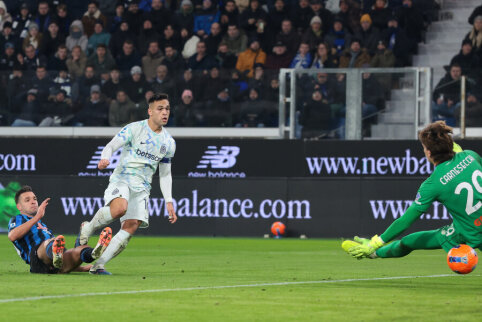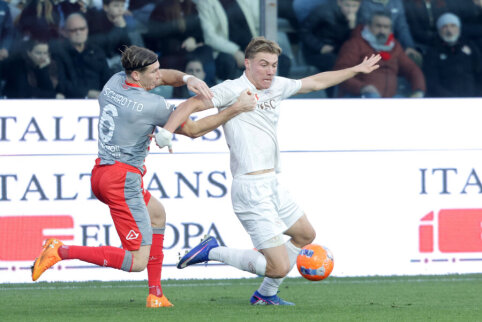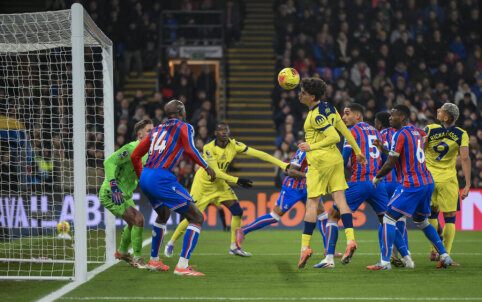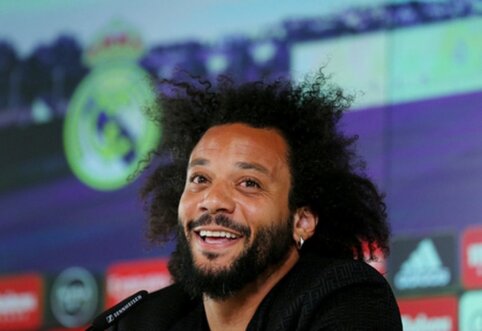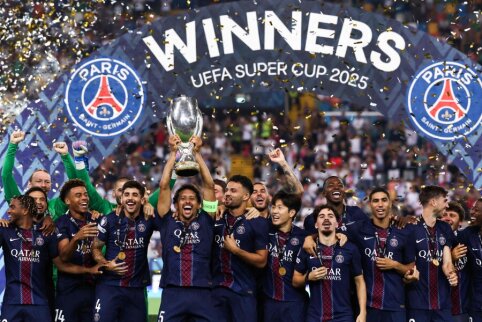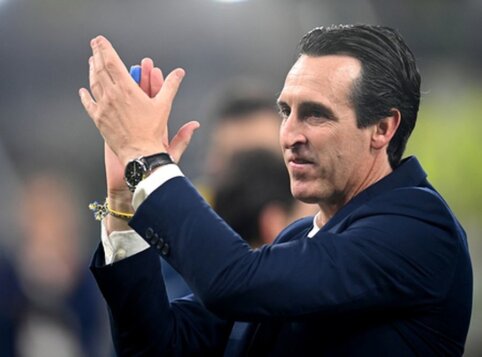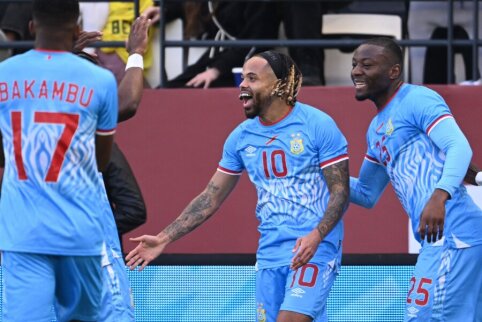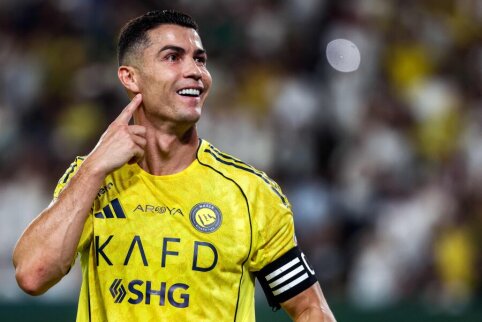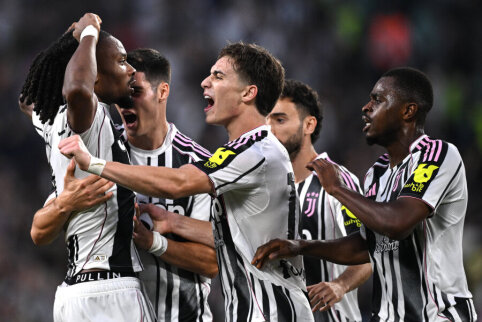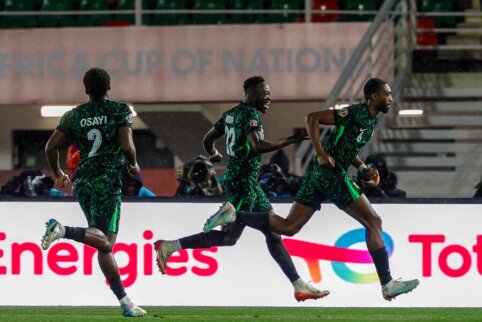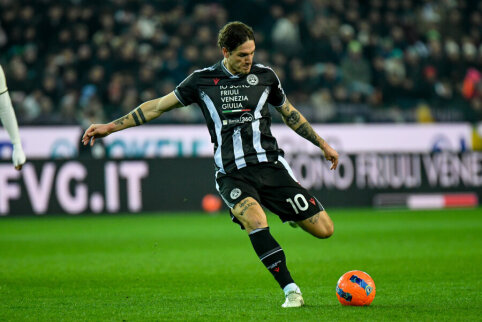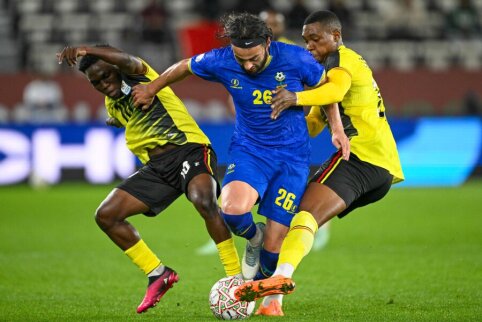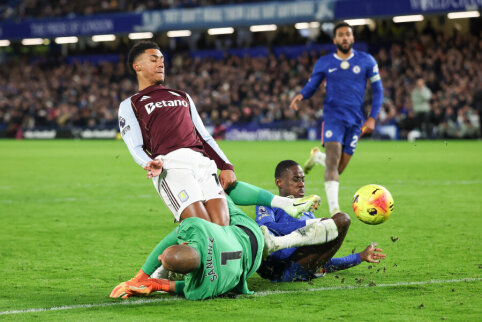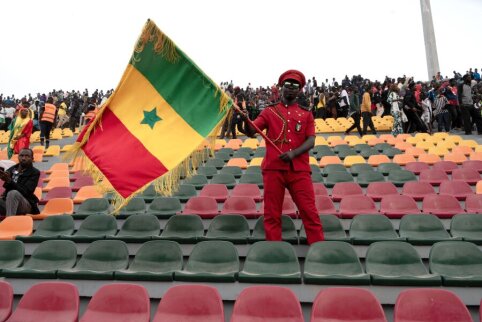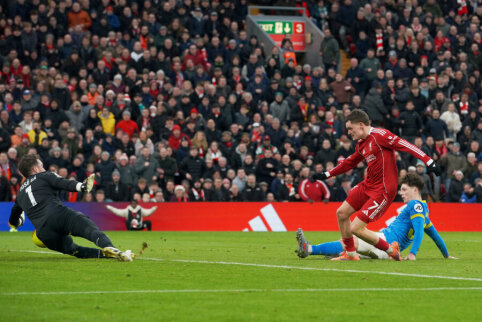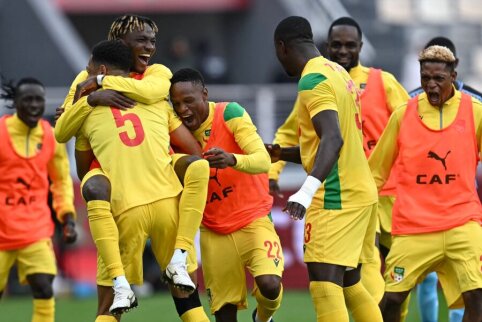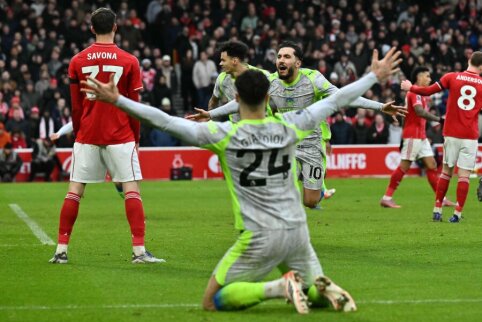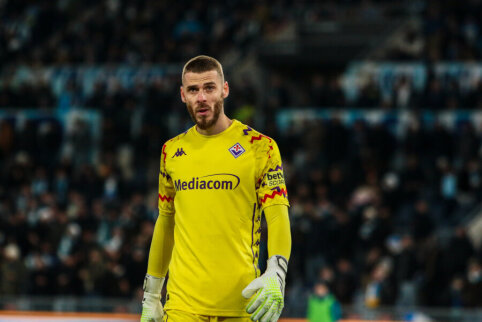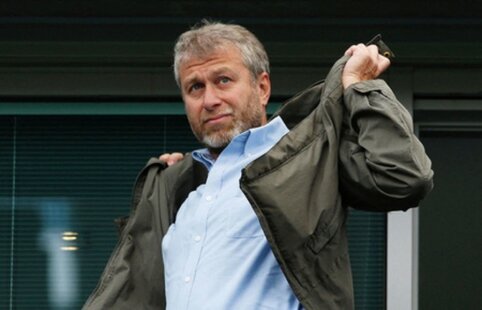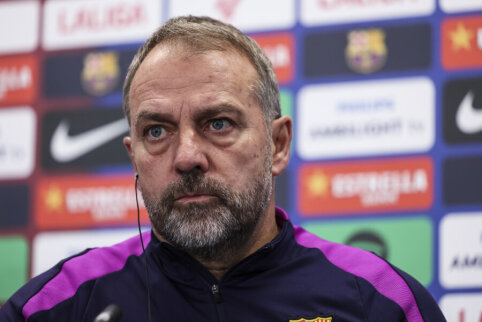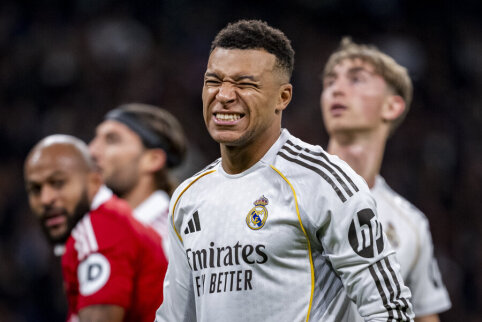 © EuroFootball.com
© EuroFootball.com
In the section of the Tribune - a new article about a legendary player. EuroFootball.com visitor Rokas suggests reading about the legendary player and Spanish national team defender Josep Guardiola who ended his career a couple of weeks ago. According to the author of the article, the text is dedicated to the player's career and the 107th anniversary of the founding of the Catalan club.
"It's a disaster! DISASTER!" - a title of one of the discussions on the Spanish football fans forum. Summer of 2001.
"Today we lost not just a football player. Today we lost our heart" - a slogan on a poster. La Rambla, Barcelona. Summer of 2001.
About the Captain they talk in numbers
Josep "Pep" Guardiola Sala "Barcelona" (1990-2001) and Spanish national team (1994-2004) defensive midfielder Born on January 18, 1971 in Sanpedor, Catalonia Height: 183 cm Weight: 78 kg
Trophies won: six-time Spanish champion, two-time Spanish Cup winner, four-time Spanish Super Cup winner. Winner of the Cups winners' Cup and UEFA Cup, two-time winner of the European Super Cup, Olympic champion.
Played 43 matches for the Spanish national team, scored 5 goals.
Defended the colors of "Barcelona" 256 times, scored 5 goals.
While playing for "Barcelona B," he provided 7 assists in a single game - an all-time record that still stands.
Included in the all-time symbolic "Barcelona" team.
In 2002, recognized as the best Catalan footballer of all time.
In 2003, 22,371 signatures were collected in Barcelona so that the number 4 of "Barcelona" would forever belong to Pep Guardiola and no Catalan club player would have the right to wear it.
From Manresa to "Barca"
The last decade of the past century is considered the most successful in the history of "Barcelona" - the Catalan super club won 17 official trophies and had such stars as Andoni Zubizarreta, Ronald Koeman, Romario, Hristo Stoichkov, George Hagi, Ronaldo, Luis Figo, Rivaldo, and many others playing for the team.
However, in 2003, during a survey in Spain to find the best "Barcelona" player of the last decade of the 20th century, Josep Guardiola decisively won.
Josep Guardiola Sala began playing football at the age of 6 in the small provincial town of Manresa. It was there that in 1983, scouts from "Barca" noticed him, and a year later - on June 28, 1984 - the young boy (or rather, his parents) signed his first contract in his life. Since then, 17 years have passed, and all of them Pep belonged body and soul only to "Barca."
On January 16, 1990, after barely a year playing for "Barcelona B," Josep Guardiola made his debut in the main team.
Legendary "Barca" coach Johan Cruyff, always known for trusting the young, let Pep play in the starting lineup in a match against the "Cadiz" team, and the Blaugrana celebrated a 2-0 victory.
So it turned out that after two years it was impossible to imagine "Barca" without this footballer. J. Cruyff thought for a long time in which position it would be best to use Pep's talent. In the end, the legendary Dutchman decided that J. Guardiola would give the most benefits playing as a defensive midfielder. This decision fundamentally changed the prevailing football philosophy at the time, according to which a defensive midfielder could not be a playmaker at the same time.
Time proved that J. Cruyff was not mistaken - Guardiola had enough potential to play physical football and break through the opponent's defense, and most importantly - he saw the field perfectly. Pep knew how to make precise passes and, when needed, selflessly defend.
These qualities, along with his leadership character, made Josep Guardiola an invaluable part of "Barcelona's" game.
Victories Rain
At the age of 22, Guardiola was already the captain of Blaugrana. The young footballer had undeniable authority among his teammates, and the older and more experienced players listened carefully to him.
In 1992, which became the most important year in Pep's career, finally shaping him as a player, made the talented footballer a true European star.
That year, Guardiola won the Champions League final for the first time in the team's history with "Barcelona," became Spanish champions for the second year in a row, and the national Spanish team, with Pep as the vice-captain, triumphed at the Olympic Games.
By the way, the Olympic Spanish team played all the matches in Valencia - the organizers of the games were very afraid of Catalan nationalism manifestations and boycotting matches. Nevertheless, the final had to take place at "Camp Nou" - the stadium where there is only one team for the viewers - a symbol of Catalonia - "Barcelona."
The 1992 Barcelona Olympics football final was the only match when any Spanish national team could play at "Camp Nou."
Before the decisive match, the Catalans representing the Spanish national team - Pep Guardiola, Antonio Pinilla Miranda, Alberto Ferrera - turned to the fans through the press, asking to support the Spanish (!) national team playing in "Barca's" sanctuary.
And it must be said right away that the stadium on that day looked as if no fly would dare to land there, and the Spanish flags were friendly fluttering along with the Catalan ones. In a fierce battle, Spain beat Poland 3-2, with Kiko scoring a hat-trick. Pep Guardiola made two assists.
In 1993, Guardiola experienced his first serious setback - "Barca's" captain suffered two injuries, the consequences of which he felt throughout the rest of his career - a groin and both meniscus. Overall, due to injuries, Josep had to miss almost half a year. In those memorable 1993, Romario, a super successful Brazilian player, joined "Barca" from PSV Eindhoven. In the first game, "Barca" met Real Sociedad from San Sebastian. Romario immediately scored a hat-trick, with all three assists provided by Josep Guardiola. In that season, Romario barely managed to score 30 goals in 28 matches, out of which he made 13 assists, with none other than Pep providing them. In 1994, "Barcelona" again became the champion of the Spanish league, but lost in the Champions League final to Milan. Pep Guardiola went to the World Cup in the United States with the Spanish national team, but he was plagued by injuries again. The Catalan scored a goal in a match against Bolivia and made an assist in a match against Germany.
Between Two Fires
Pep's popularity and authority in "Barca" continued to grow. At the start of the 1994-1995 season, Romario did not show up on time for the team's training camp, citing family problems. Soon, photos appeared in the press showing the Brazilian having fun in discos and nightclubs. An infuriated Johan Cruyff publicly stated that Romario must return to the club within three days. The only player supporting the coach was Pep Guardiola. "We are professional players and cannot behave like this, and if anyone doesn't like it - there is no place for him between us," the team captain bluntly said. Despite the ultimatum, Romario did not return to the club's training camp within the given time, and the principled J. Cruyff announced that Barcelona was selling the Brazilian. Later, Romario publicly admitted that his frivolous behavior at "Barca" was the biggest mistake of his life. In the 1994-1995 season, Pep Guardiola scored one of the most beautiful goals of his career. In a match against Atletico Madrid, he struck a shot from 30 meters that was so precise and powerful that the ball hit the corner of the goal where a camera had been set up, and "Barcelona" won with a score of 4-3. In that troubled season for the Catalans, a previously unseen conflict developed within "Barca" - a disagreement arose between coach J. Cruyff and Bulgarian player Hristo Stoichkov. Their disagreements gradually took on a team-wide color, and all the players sided with the coach. The conflict turned into an open war - in the press, the Bulgarian criticized the coach and the team, was either not allowed on the field, or appeared in games only episodically. In a match against Valladolid, the Bulgarian scored a great goal, but after the match, Miguel Angel Nadal, who made the assist, said in an interview that the ball "accidentally slipped off his foot," and he didn't intend to pass it to Stoichkov. Pep tried to calm the conflict: he went back and forth between Cruyff and Stoichkov, but unsuccessfully - the Bulgarian moved to Parma. Downhill In 1995, "Barca" underwent a huge transformation and Cruyff tried to form a new team around Guardiola, but Pep was forced to miss most of the season due to a cruciate ligament injury, and "Barcelona" finished fourth in the standings. Annoyed Josep Lluis "El Emperador" Nunez fired the coach Johan Cruyff. Shocked Pep asked for a personal audience, and the club president spent three hours explaining to the player that without J. Cruyff, "Barca" would be better off. In 1996, J. L. Nunez tried to revive the Catalan super club and invited English specialist Bobby Robson. The season unfolded especially successful for Pep, and most importantly, by some mystical means, he managed to avoid injuries. "Barcelona" won everything it could... except the Spanish league. This fact became the main reason to dismiss Bobby Robson. The head coach was subsequently replaced by Louis Van Gaal, considered the strictest strategist of that time.
"Barca" saw an influx of Dutch players under Van Gaal's management, and Pep, having played only 6 games in La Liga, was sidelined due to a serious knee ligament injury by the end of the season. Raul, the iconic captain of Madrid's "Real" club, publicly posted a letter on the official website of the Spanish capital club, wishing Pep Guardiola a speedy recovery. Like a Phoenix from the Ashes In June 1998, the struggling "Barcelona," coached by Lorenzo Serra Ferrero, played an ordinary La Liga match against "Valladolid" with eleven players on the field. At halftime, the new face of Joano Gaspart's "Barca" remained in the tenth place - as a defender Abelardo was removed from the field under odd circumstances.
Despite the precise pass from Josep Guardiola to Patrick Kluivert and the subsequent shot giving "Barca" a minimal advantage, "Valladolid" managed to equalize just three minutes later, despite having one player less.
However, the drama that unfolded during the final minutes of the match at "Camp Nou" added a different dimension to the story.
In the 82nd minute of the game, "Barcelona" captain, seeing that the goalkeeper of the visitors, Albano Bizzari (now playing for Tarragona's "Gimnastic"), did not hurry up, signaled and called the whole team to the center of the field. TV cameras turned to Pep - his face twisted with anger, Guardiola vigorously explained something to his teammates.
When the "Valladolid" goalkeeper finally sent the ball into play, "Camp Nou" suddenly saw a completely different "Barca." At Pep's command, only Phillip Cocu and Frank De Boer remained in defense, and the exhausted team, with one player less, stormed the opponent's goal as if a hurricane had hit A. Bizzari's net.
Minutes 92... After conceding a foul against Patrick Kluivert, the referee awarded a penalty. The distance to the goal - 33 meters.
Rivaldo intended to shoot and looked for Kluivert's eyes to hand over the ball to the Dutchman to score, but soon the situation changed - Josep Guardiola calmly walked up to Rivaldo.
A few moments later, the Brazilian was already running towards the opponent's penalty area, and the team's Captain took the initiative in the most difficult moment of the match.
In almost deadly silence, Pep made the final adjustment to the ball. Spectators, gathered at the stadium, mesmerized watched the Captain's actions. They watched and, with clenched fists, remained silent...
The next day, the front page of the Catalan newspaper "Sport" exclaimed: "And 33 meters are not a limit for the Great Captain." However, Guardiola did not know that. He also did not know that after the shot, his old groin injury would flare up again, and for the next six days, he would be lying in the hospital plagued by excruciating pain.
Pep simply accelerated and shot. He hit the ball so elegantly, like only he could - the ball whizzed to the corner of the goal, spinning rapidly, hitting the net, and the Captain collapsed from pain. "Camp Nou" was filled with some incomprehensible ecstasy, some kind of madness - the stadium simply erupted with joy, erupting without knowing that it just saw the last goal of the Great Captain...
Our Heart...
During the championship, Pep's agent tries to convince his client to stay in the team for more than just one season. Guardiola's old contract, signed back in 1996, had never been revised.
He starts negotiations with the new "Barcelona" president Joan Gaspart.
Meanwhile, the only thought in Gaspart's mind is how to revive the club. J. Gaspart is preparing another "bomb" - $70 million for Michael Owen, so he says that there is nothing against keeping J. Guardiola but offers him... half the salary.
Everything falls apart one day - Pep accidentally finds out what his agent was offered by the new club president. Morally devastated, he publicly announces that he is definitely leaving "Barcelona" after the season.
In a press conference, he talks a lot about the triumphs of "El Emperador" Nunez and at the same time vehemently denies rumors that J. Gaspart offered him a lower salary.
Everyone had the opportunity to see what their Captain WAS - a person who never dragged trash out of his backyard.
That day in Barcelona will later be called the "Day of Tears" - the day when huge crowds, crying out of anger and sorrow, besieged the "Barcelona" headquarters. Fans demanded the resignations of the club's management and the extension of the contract with J. Guardiola. After the showdown, J. Gaspart called Pep to his office and persuasively urged him to stay. However, as they say, you can't step into the same river twice...
Josep Guardiola - the heart of "Barcelona." And the transplantation and treatment of this organ, as you know, require a tremendous effort.
Without Pep, "Barcelona" won nothing because a person without a heart cannot live, just as a club without a Captain cannot win.
After Pep's departure, the captain's armband was taken over by P. Cocu and Luis Enrique - excellent players, wonderful people, but not Catalans at heart.
Now "Barcelona" has its heart again - the captain's armband proudly rests on Carles Puyol's arm. This means that "Mes que un Club" can win again because it has its Heart - its More than a Captain...
